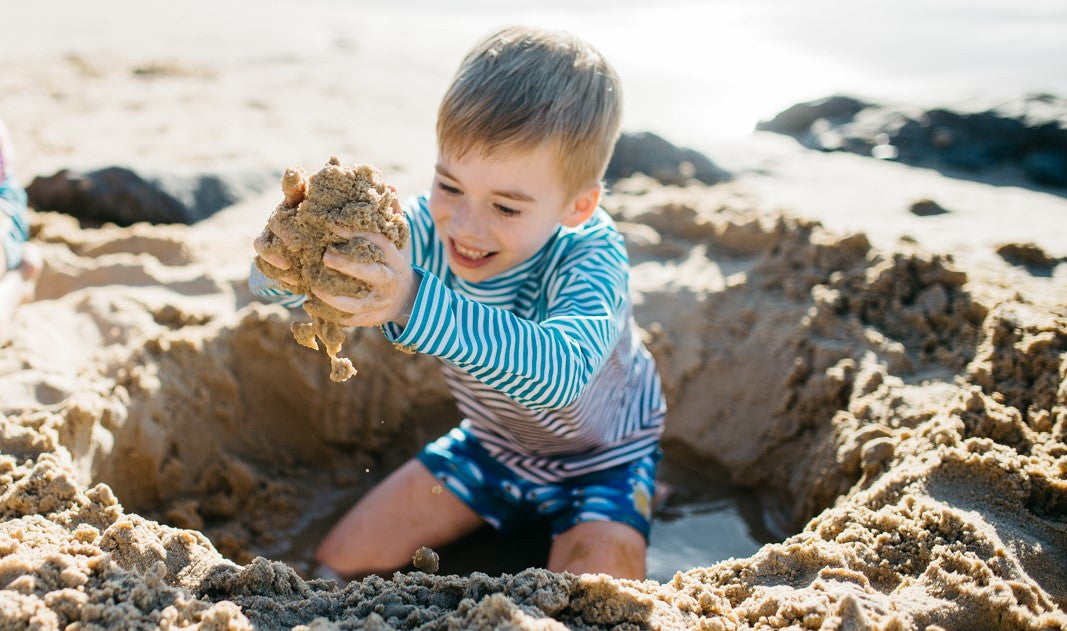
Brain Development, Playing and The Importance of Getting Grubby. by Dr Marnie Cumner
Playing has been listed as a child’s fundamental human right by the United Nations and one prominent academic is calling for the first lesson of the school day to be recess. So, what’s all this fuss about children and playing?
With the seemingly never-ending carousel of school, homework, projects, dance class, sports practice, music lessons, and then some more homework - it can seem like our children are scheduled to the eyeballs. Add to this the increasing use of screen-time as down-time and suddenly there is little room for anything else. In our hurried modern world, the importance of just playing – unstructured, free, joyous playing – can be so easily overlooked.
A child’s brain develops in response to its environment. Children are like sponges, absorbing new information and experiences, then using these to fuel their own ideas and creations. Like a muscle, those pathways in the brain that are used often become stronger. We all want our children to be good problem-solvers, to interact well with others, to manage their emotions well, to be creative, resilient and to communicate effectively. Play gives our children the opportunity to develop and strengthen these areas.
From an early age, play allows infants and children to engage with the world around them. Consistent, predictable and loving relationships are essential to healthy brain development. Playing with the important adults in their lives gives children the chance to learn new skills and face new challenges in a secure, loving environment. Children also learn how to manage their own responses to everyday challenges and frustrations by observing the adults in their life. But time playing without adults is also important, as it allows children to create a world where they are in charge of the challenges they face, at their own pace.
Play comes in many different forms – active and physical games, make-believe, language and social games, as well as construction and experimenting. Play is spontaneous, voluntary, unpredictable and great fun. It gives children the time and space to immerse themselves in their own imagination or environment. This means letting them get dirty, experiment, build things, make a mess, fall over and even letting them fail sometimes. Research suggests that free play outside also provides great benefits to child development, such as improving physical wellness, environmental awareness, creativity, confidence and concentration.
By giving our children the time and space to play – creative, exciting, adventurous, imaginative play – we are setting them on the right path toward becoming confident, motivated, resilient and kind adults.
_________________________________________________________________________________________________________________________
Dr Marnie Cumner is a Clinical Neuropsychologist who specialises in understanding how brain function affects the everyday thinking and behaviour of children and adolescents. She currently practices in Noosa Heads and lives in the peaceful Noosa hinterland with her husband, two young children and menagerie of farm animals. www.sunshinecoastneuropsychology.com
